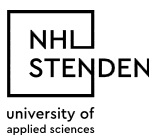Bachelor of Business Administration in International Business and Languages (Stenden University of Applied Sciences)
Emmen, Netherlands
Reviewed by NVAO
- Valid from
- 04-04-2023
- Valid until
- 31-08-2023
Contact information
- Institution
- Stenden University of Applied Sciences
- Website
- https://www.nhlstenden.com/en
- Country
- Netherlands
Assessment report
02 7139 CeQuint-Stenden-IBL-panel report-final_10222Executive Summary
The Bachelor of Business Administration in International Business and Languages (IBL) is provided by Stenden University of Applied Sciences. The programme was assessed by NVAO, the Accreditation of The Netherlands and Flanders. NVAO convened an assessment panel which studied the self-evaluation report and undertook a site visit on 13 December 2017 in Emmen, The Netherlands.
The panel expresses its gratitude for the openness and hospitality showed by the programme, for the meticulous provision of the relevant documents and materials, and for the excellent showcases by the students of the programme.
Standard 1. Intended internationalisation – Excellent
IBL has actively and enthusiastically worked very hard in the past years to devise coherent and verifiable internationalisation goals, in line with the institution’s goals and regularly measured (applying the Nuffic MINT tool). These goals are supported by stakeholders, as evidenced by the highest score on internationalisation in the National Student Survey 2017.
Standard 2. International and intercultural learning – Excellent
The programme’s internationalisation goals are well reflected in its intended international and intercultural learning outcomes, the student assessment methods are most suitable and the programme has demonstrated that these learning outcomes are achieved. The continued efforts to improve the testing of intercultural learning outcomes, the participation in the Global Mind Monitor and the excellent preparation of students to acquire intercultural skills can be regarded as exemplary examples.
Standard 3: Teaching and Learning – Good
The curriculum, teaching methods and learning environment are suitable for achieving the intended international and intercultural learning outcomes. The panel commends the programme on providing multiple options for gaining international and intercultural experiences, and making every effort to let the international students feel at home. Identifying key partner institutions for exchanges, strengthening the opportunities of the international branch campuses in the mobility activities, and creating a space in the curriculum for non- European languages would further benefit the teaching and learning process.
Standard 4: Staff – Good
The panel commends the programme on its very committed and enthusiastic staff. The staff composition is adequate but could be more international diverse. The panel recommends that the programme drafts a recruitment plan with specific actions to attract more international staff members. The staff members have sufficient internationalisation experience, intercultural competences and language skills and are facilitated by the services provided to them.
Standard 5: Students – Good
The student composition exceeds the programme’s objective of at least 3 nationalities but has an overrepresentation of German students in view of its targets. To ensure that the latter objective will be met in the coming years and more students will be attracted overall the panel recommends to devise a recruitment and marketing plan that includes measures such as engaging the international branch campuses, visiting secondary schools in target countries and turning alumni into ambassadors for the programme in their home country.
The 2018 merger of Stenden and NHL into NHL Stenden University of Applied Sciences and the national restructuring leading to a new International Business (IB) programme poses both challenges and opportunities. The IB programme will comprise both the Stenden and NHL IBL and International Business and Management Studies (IBMS) programmes. As NHL and Stenden are already cooperating in providing the IBMS programme the opportunities are far greater than the challenges. The panel is confident that the strong international profile and coherence of IBL will be transferred to the IB programme.
To conclude, the panel has encountered an IBL programme that presents a true richness in its international and intercultural goals, learning outcomes, and student experiences. The engaged and enthusiastic staff provide a programme that is valued by its students and that offers unique mobility opportunities with its international branch campuses. The award of the ECA Certificate for Quality in Internationalisation is well-deserved and therefore strongly proposed by the panel.